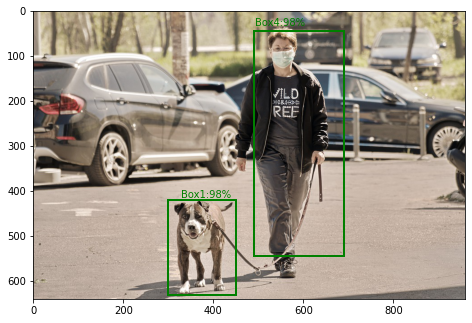Given two integers n and m and a and b, in a single operation n can be multiplied by either a or b. The task is to convert n to m with a minimum number of given operations. If it is impossible to convert n to m with the given operation then print -1.
Examples:
Input: n = 120, m = 51840, a = 2, b = 3 Output: 7 120 * 2 * 2 * 2 * 2 * 3 * 3 * 3 = 51840 Input: n = 10, m = 50, a = 5, b = 7 Output: 1 10 * 5 = 50
In the previous post, we discussed an approach using division.
In this post, we will use an approach that finds the minimum number of operations using recursion. The recursion will consist of two states, the number being multiplied by a or by b, and counting the steps. The minimum of both steps will be the answer.
Below is the implementation of the above approach:
C++
// C++ implementation of the above approach#include <bits/stdc++.h>using namespace std;#define MAXN 10000000// Function to find the minimum number of stepsint minimumSteps(int n, int m, int a, int b){ // If n exceeds M if (n > m) return MAXN; // If N reaches the target if (n == m) return 0; // The minimum of both the states // will be the answer return min(1 + minimumSteps(n * a, m, a, b), 1 + minimumSteps(n * b, m, a, b));}// Driver codeint main(){ int n = 120, m = 51840; int a = 2, b = 3; cout << minimumSteps(n, m, a, b); return 0;} |
Java
// Java implementation of the above approachclass GFG{ static int MAXN = 10000000; // Function to find the minimum number of steps static int minimumSteps(int n, int m, int a, int b) { // If n exceeds M if (n > m) return MAXN; // If N reaches the target if (n == m) return 0; // The minimum of both the states // will be the answer return Math.min(1 + minimumSteps(n * a, m, a, b), 1 + minimumSteps(n * b, m, a, b)); } // Driver code public static void main (String[] args) { int n = 120, m = 51840; int a = 2, b = 3; System.out.println(minimumSteps(n, m, a, b)); }}// This code is contributed by ihritik |
Python3
# Python 3 implementation of the # above approachMAXN = 10000000# Function to find the minimum # number of stepsdef minimumSteps(n, m, a, b): # If n exceeds M if (n > m): return MAXN # If N reaches the target if (n == m): return 0 # The minimum of both the states # will be the answer return min(1 + minimumSteps(n * a, m, a, b), 1 + minimumSteps(n * b, m, a, b))# Driver codeif __name__ == '__main__': n = 120 m = 51840 a = 2 b = 3 print(minimumSteps(n, m, a, b))# This code is contributed by# Surendra_Gangwar |
C#
// C# implementation of the above approachusing System;class GFG{ static int MAXN = 10000000; // Function to find the minimum number of steps static int minimumSteps(int n, int m, int a, int b) { // If n exceeds M if (n > m) return MAXN; // If N reaches the target if (n == m) return 0; // The minimum of both the states // will be the answer return Math.Min(1 + minimumSteps(n * a, m, a, b), 1 + minimumSteps(n * b, m, a, b)); } // Driver code public static void Main () { int n = 120, m = 51840; int a = 2, b = 3; Console.WriteLine(minimumSteps(n, m, a, b)); }}// This code is contributed by ihritik |
PHP
<?php// PHP implementation of the above approach$MAXN = 10000000;// Function to find the minimum number of stepsfunction minimumSteps($n, $m, $a, $b){ global $MAXN; // If n exceeds M if ($n > $m) return $MAXN; // If N reaches the target if ($n == $m) return 0; // The minimum of both the states // will be the answer return min(1 + minimumSteps($n * $a, $m, $a, $b), 1 + minimumSteps($n * $b, $m, $a, $b));}// Driver code$n = 120; $m = 51840;$a = 2; $b = 3;echo minimumSteps($n, $m, $a, $b);// This code is contributed by Akanksha Rai?> |
Javascript
<script>// javascript implementation of the above approach var MAXN = 10000000; // Function to find the minimum number of steps function minimumSteps(n , m , a , b) { // If n exceeds M if (n > m) return MAXN; // If N reaches the target if (n == m) return 0; // The minimum of both the states // will be the answer return Math.min(1 + minimumSteps(n * a, m, a, b), 1 + minimumSteps(n * b, m, a, b)); } // Driver code var n = 120, m = 51840; var a = 2, b = 3; document.write(minimumSteps(n, m, a, b));// This code contributed by Rajput-Ji</script> |
7
Time Complexity: O(m2)
Auxiliary Space: O(m2 + MAXN)
Ready to dive in? Explore our Free Demo Content and join our DSA course, trusted by over 100,000 neveropen!

